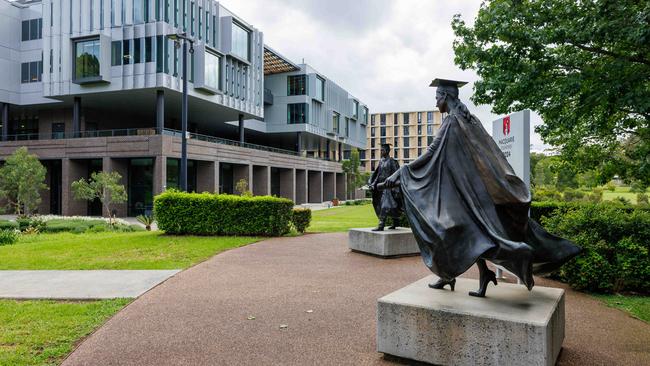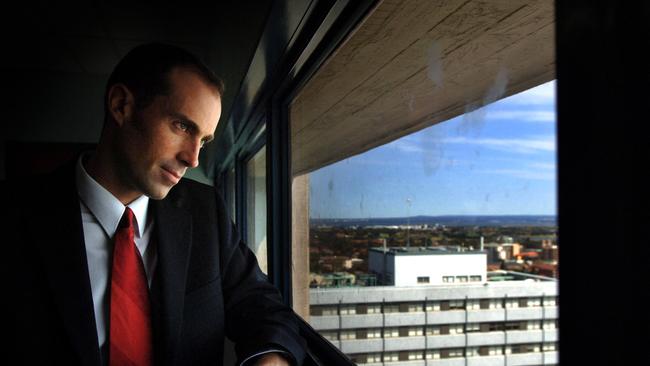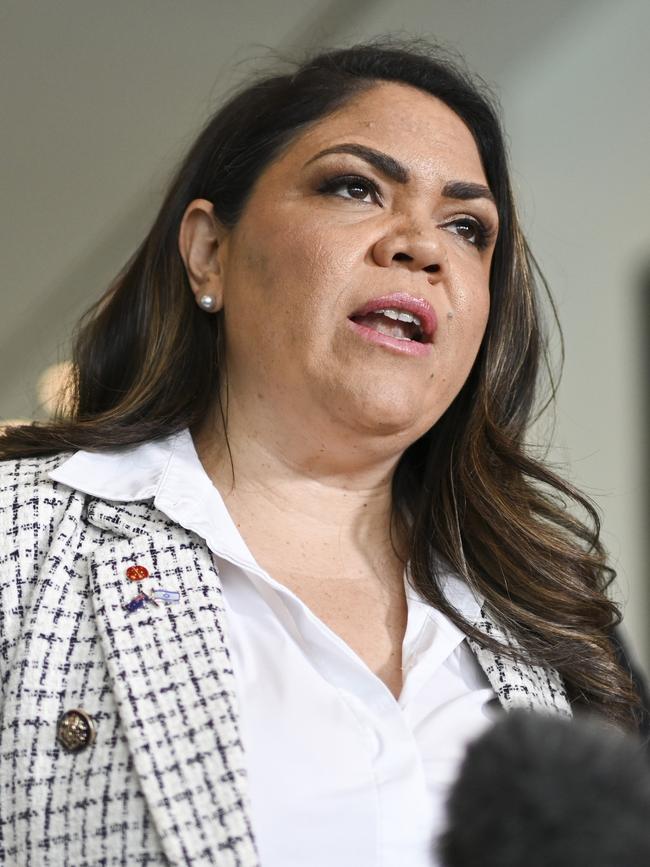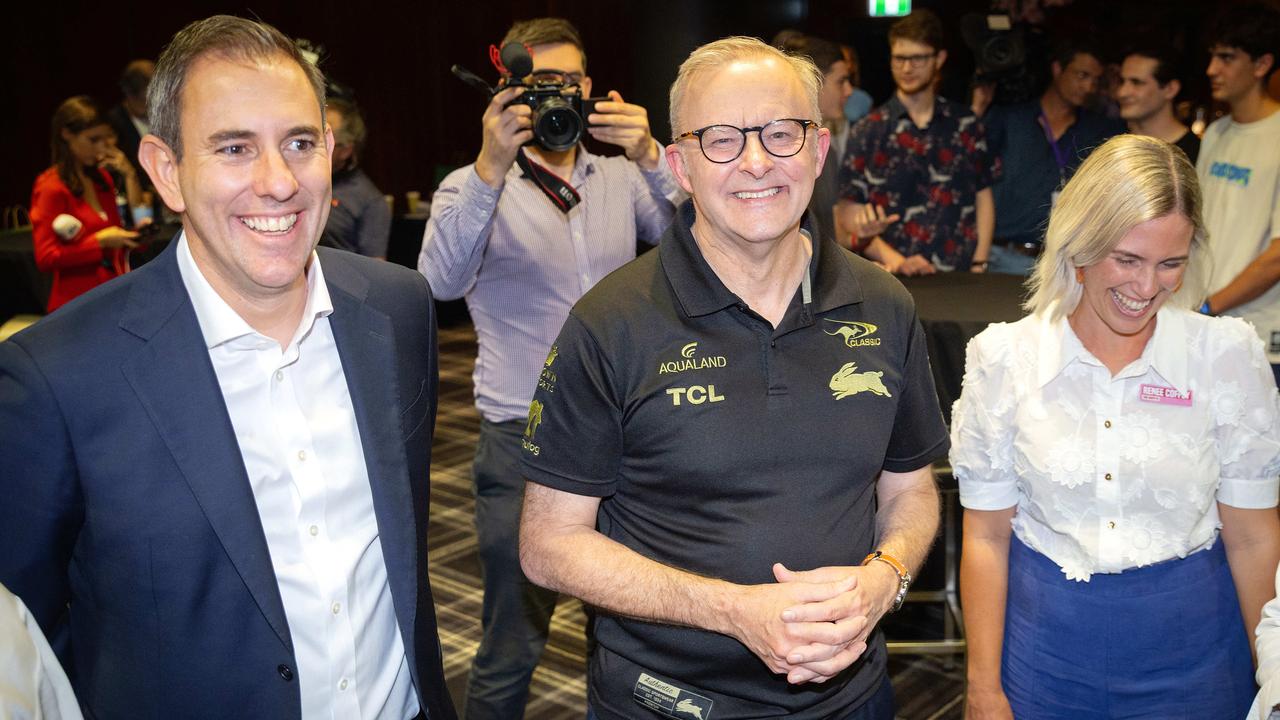Self-censorship a common theme on DEI campuses

Last week University of NSW law dean Andrew Lynch offered a response to recent revelations that suggested Macquarie University and Monash University law schools were doing too much indoctrinating and not enough educating.
Lynch’s response focused on the fact law schools had to be accredited by legal admissions bodies. These bodies have senior judges on them and they insist on a hefty helping of “black-letter” knowledge. Lynch then quoted from a famous 1897 Harvard Law Review article by one of the all-time great US Supreme Court justices, Oliver Wendell Holmes Jr, to the effect that there is more to understanding the law than just memorising rules and learning cases. (In fact, Holmes was a utilitarian and predicted future great lawyers would have a solid grasp of economics, which I don’t think was what Lynch was defending, but Holmes’s prose is soaring and easy to quote.)
I confess that reading Lynch’s attempted defence of what’s happening at Macquarie and Monash reminded me of the great American magicians Penn & Teller, whom I was lucky enough to see live a few years back in the US.

The key to magic, they tell their audiences, is misdirection. Get them looking over there while you’re working here. So it is with Lynch. The serious complaints coming out of these two law schools demonstrate left-wing ideologies are being force-fed to students to such an extent that students are self-censoring.
There is evidence of mandatory acknowledgments of country by students whose grades depend on not just doing them but on their level of enthusiasm. There are left-wing theoretical frameworks – never right-wing ones – through which doctoral students are being compelled to see their subject if they wish to pass. In these and other cases, law students are afraid to speak except anonymously. That is the gist of what Lynch implicitly pooh-poohs, any talk of “a crisis of ‘woke ideology’ rampant in university law schools”.
Lynch never refutes the core claim that students are self-censoring. He never gives any example of right-of-centre lenses through which law also must be understood. Instead, he speaks of needing to review course materials. He tells us there is nothing new to understanding law in its broader context. And he tells us how committed he is to meaningful debate.
As one of a vanishingly few openly conservative law professors in this country, let me give a slightly different take to Lynch’s.
Students do self-censor. I have been contacted many times by students and even junior academics who tell me they’re afraid to voice conservative views.

Argue that you think acknowledgments of country are patronising and condescending – my view, as it happens – and I have no doubt a student’s grades would often be affected.
There are 36 law schools in this country and by my count there were four legal academics who came out openly against the voice. I was one. For the sake of debate in our universities we couldn’t risk travelling on the same plane. Two-thirds of our publicly funded universities came out openly for Yes (as did most judges, as it happens).
The rest of our unis purported to be neutral while running “information sessions” that were heavily slanted one way. (Readers know which way without me telling them.) It was a disgrace on an issue that divided the two main political parties.
No academic could have lived through that and remotely believe our universities and law schools were committed to open debate and hearing all sides of an issue.
The same goes with the Israel-Gaza fighting. I suppose it’s easier for those whose views line up with the vast preponderance of legal academics’ views – overwhelmingly progressive and supportive of net zero, transgender rights, “indigenising the curriculum” and so on.
Does Lynch believe that a student who argues in support of Jacinta Nampijinpa Price’s view that the arrival of the British has been, on balance, a plus for Aboriginal people will receive a fair hearing? Or who takes on the environmental, social and government mob? Or who argues that the whole diversity, equity and inclusion complex undermines merit and is a thinly disguised form of affirmative action based on arbitrary group characteristics, aka identity politics?

Because if Lynch believes any of that he is living in a different academic universe to the one I inhabit. Debate on those sort of issues is overwhelmingly not welcomed. Junior academics who are conservative know it. Students know it. (That’s why they write and speak only anonymously).
Question these sort of things or refuse to mouth the expected acknowledgment pieties, and promotions, grades and jobs can be affected.
Did I mention in the US donations to political parties is public information? In 2024 a Notre Dame law professor trawled through five years of data to 2023, looking at all US law professors. He came up with a Democrat to Republican donating ratio of 36:1.
If the 2023 voice campaign is anything to go by, Australia is just as skewed. Sure, one may feel free to express whatever one likes when one’s views happen to line up with those of the administration and most colleagues. But Lynch should recognise it’s a different world for those on the political right. By the way, I wonder how many legal academics at UNSW were openly against the voice, remembering that 60 per cent of voters opposed it?
James Allan is Garrick professor of law at University of Queensland.


